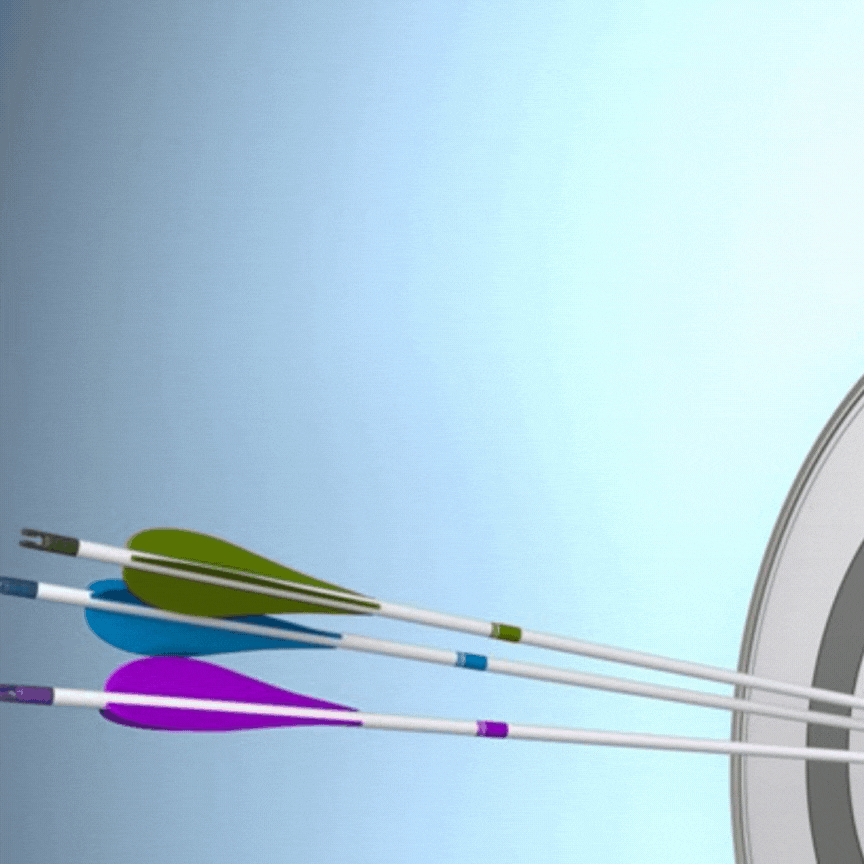
About Applying 7 Habits of Highly Effective People to Fitness
The 7 habits of highly effective people is a self-help book written by Stephen Covey that offers practical advice for achieving success in both personal and professional life. Covey said, “Our character is basically a composite of our habits. Because they are consistent, often unconscious patterns, they constantly, daily, express our character.” So developing the habits is key to achieving your goals.
Below, we will apply these seven habits to a fitness program and outline a plan for utilizing them to help you achieve your fitness goals.
- Be proactive: This habit emphasizes the importance of taking responsibility for one’s actions and decisions. In a fitness program, being proactive means setting achievable goals and creating a plan to reach them. This involves taking control of your health and making exercise a priority in your life.
- Begin with the end in mind: The second habit encourages people to have a clear vision of what they want to achieve in life. In a fitness program, this means having a clear understanding of your fitness goals and what you want to achieve. This could be losing weight, building muscle, or improving overall fitness.
- Put first things first: This habit emphasizes the importance of prioritizing activities that are most important and align with your goals. In a fitness program, this means dedicating time to exercise and making it a priority in your life.
- Think win-win: The fourth habit emphasizes the importance of creating win-win situations in relationships. In a fitness program, this means finding ways to make exercise enjoyable. This particularly applies to making it enjoyable with friends and family. It could include joining a fitness class, playing a new sport, or trying a new activity. The result will be a win for your friend and yourself.
- Seek first to understand, then to be understood: This habit emphasizes the importance of listening to others and considering their perspective. In a fitness program, this means taking into consideration any physical limitations or injuries of your friend(s). Modify the exercise routine accordingly if necessary.
- Synergize: This habit emphasizes the importance of working together to achieve a common goal. In a fitness program, this means finding a workout buddy. Or, joining a fitness class to work out with others and reach your goals together.
- Sharpen the saw: The seventh habit emphasizes the importance of self-care and taking care of your physical, mental, emotional, and spiritual well-being. Clearly, this is a great example of taking care of your physical self. In a fitness program, you also want to take time to recover from exercise, making sure to get enough rest, and nutrition to support your fitness goals.
Let’s dive a little deeper into each habit:
Be proactive
Be proactive is based on the idea that people should take responsibility for their own lives and make things happen rather than being passive and waiting for things to happen to them.
In a fitness program, being proactive means taking control of your own health and wellness and making conscious decisions to improve it. This habit encourages individuals to take the initiative in designing and executing their own fitness program and make the necessary changes to reach their fitness goals.
One of the ways to be proactive in a fitness program is to start by setting specific and achievable goals. Goals give direction and purpose to the program and help individuals to focus on what they want to achieve. A proactive individual will research and gather information on the best exercises and techniques to reach their goals, rather than relying on someone else to design the program for them.
Another way to be proactive in a fitness program is to seek out new opportunities to challenge yourself and improve. A proactive individual will seek out new and innovative ways to exercise, such as trying new classes, attending workshops, or engaging in outdoor activities. This proactive attitude keeps the program fresh and exciting, and helps individuals to avoid boredom and burnout.
Finally, being proactive in a fitness program means taking responsibility for your own progress. A proactive individual will track their progress and make adjustments to the program as necessary to ensure they are making progress towards their goals. This includes monitoring their nutrition, setting realistic expectations, and making changes to their program if needed.
Begin with the end in mind
When applied to a fitness program, begin with the end in mind means starting with a clear and specific vision of what you want to achieve. The idea is to have a clear picture of your ideal fitness level, and work backwards from there to create a plan that will help you get there.
To implement this habit, start by setting long-term fitness goals. These should be specific, measurable, achievable, relevant, and time-bound. For example, your goal may be to be able to run a 5k race in 6 months’ time.
Once you have set your long-term goals, break them down into smaller, manageable goals. For example, to achieve your 5k goal, you may start with a goal of running a mile without stopping. Set deadlines for each of these smaller goals, and regularly check in on your progress.
To make sure you stay on track, create a visual representation of your progress. This could be a chart, graph, or even a vision board. This will help you to see how far you have come, and will keep you motivated to continue.
Finally, make sure that your daily habits align with your goals. This means that you need to be consistent with your exercise routine, eating habits, and other lifestyle choices. Remember, small steps taken consistently over time will lead to big results.
Put first things first
Put first things first refers to prioritizing tasks and activities based on their importance. When applied to a fitness program, it means that you should put your focus and energy on the activities that are most important for your fitness goals, rather than wasting time and energy on things that don’t matter. Here’s how it could be applied to a fitness program:
- Prioritize physical activity: Physical activity should be at the top of your to-do list, as it’s essential to your overall fitness and health. Set aside time each day or week to engage in physical activity, whether that be through structured exercise, an active hobby, or simply walking more.
- Make time for self-care: Self-care, such as stretching, foam rolling, and recovery activities, is also important in a fitness program. Prioritize these activities to help prevent injury, reduce muscle soreness, and maintain a high level of fitness.
- Focus on healthy habits: In order to support your fitness program, it’s important to focus on healthy habits outside of exercise, such as eating a balanced diet, getting adequate sleep, and managing stress. Make these a priority, and avoid activities or habits that could undermine your fitness goals.
- Limit distractions: Distractions, such as social media, email, or other distractions, can easily pull your focus away from your fitness program. Limit or eliminate these distractions to maximize your focus and energy on your fitness goals.
Think win-win
This habit is all about having a mindset that looks for mutual benefits in all interactions and relationships. In the context of a fitness program, this habit can be applied in several ways:
- Collaborate with others: When you’re working on a fitness program, it’s important to have support from others. Collaborating with a workout buddy or joining a group fitness class can help you stay motivated and on track. By working together, both individuals or the group can benefit from the support, encouragement, and accountability.
- Look for win-win solutions: When setting fitness goals, it’s important to ensure they are achievable and realistic. If you’re struggling to keep up with your program, consider modifying your goals to make them more manageable. A win-win solution can help you to reach your fitness goals without feeling overwhelmed or frustrated.
- Foster positive relationships: Building positive relationships with those around you, such as your family, friends, and coworkers, can help you maintain your fitness program. Encouragement and support from those close to you can make a huge difference in your motivation to stay active.
- Be open-minded: By being open-minded, you can learn from others and find new ways to improve your fitness program. You can also help others by sharing your own experiences and insights.
By adopting a win-win mindset and fostering positive relationships, individuals can work together to achieve their fitness goals and create a supportive environment for physical activity.
Seek first to understand then be understood
This habit involves seeking to understand the needs and motivations of others who may be involved in your fitness journey, such as friends, family members, or personal trainers. By prioritizing understanding, you can develop a more effective and sustainable approach to fitness that works for you and the people around you.
One application of “seek first to understand then be understood” is in the context of social support. If you have friends or family members who are also interested in fitness, it can be helpful to understand their motivations and preferences. For example, if your workout buddy prefers high-intensity interval training (HIIT) but you prefer weightlifting, you may need to find a compromise that works for both of you. Or even better yet, find a new solution neither of you thought of that would be a win-win. By understanding each other’s preferences and motivations, you can work together to create a supportive and enjoyable fitness routine.
This mindset can also be applied to working with a personal trainer or fitness professional. Before starting a new fitness program, take the time to communicate your goals, preferences, and any health concerns with your trainer. At the same time, seek to understand their approach to training and their recommendations. By working together to develop a personalized plan that takes into account your unique needs and preferences, you can create a sustainable and effective fitness routine.
Synergize
To concisely state it, “two heads are better than one”. The idea of working together with others to achieve a common goal. In the context of a fitness program, this habit can be applied in several ways to increase motivation and make the experience more enjoyable.
1. Workout with a Partner or Group: Working out with someone else or in a group can provide accountability and motivation to stick to your fitness plan. Having a workout partner can also make exercise more fun and enjoyable.
2. Join a Fitness Class: Joining a fitness class can provide a supportive community where you can work out with others who share your goals. This can create a sense of motivation and commitment to sticking to your fitness program.
3. Hire a Personal Trainer: Hiring a personal trainer can provide support and accountability in reaching your fitness goals. A personal trainer can also provide personalized workout plans and encourage teamwork to help you achieve your goals.
4. Share Progress with Family and Friends: Sharing your progress with others can provide motivation and accountability to stick to your fitness program. Family and friends can also provide support and encouragement as you work towards your goals.
5. Participate in Fitness Challenges: Participating in fitness challenges can provide a sense of competition and motivation to reach your goals. This can also increase your sense of commitment to your fitness program and make it more enjoyable.
Sharpen the saw
“Sharpening the saw” refers to self-care and the importance of taking care of all aspects of one’s life – physically, mentally, emotionally, and spiritually. In the context of a fitness program, “sharpening the saw” can refer to making time for self-care and taking care of one’s physical health and well-being.
To apply this concept to a fitness program, individuals can take the following steps:
1. Prioritize self-care: Making self-care a priority will help individuals maintain their physical and emotional well-being, which will in turn make it easier to stick to their fitness program.
2. Incorporate rest days: Allowing for rest and recovery is an important part of a fitness program and helps to prevent injury.
3. Get adequate sleep: Adequate sleep is crucial for physical and mental health, and helps to reduce stress levels.
4. Maintain a healthy diet: Eating a well-balanced diet provides the body with the essential nutrients it needs to perform at its best.
5. Stretch and warm up: Stretching and warming up before a workout helps to prevent injury and makes exercise feel less daunting.
6. Focus on balance: Incorporating a mix of cardio, strength training, and flexibility work will help to create a balanced fitness program.
7. Listen to your body: Paying attention to physical cues and adjusting your fitness program accordingly will help to prevent injury and burnout.
By utilizing the 7 habits of highly effective people in a fitness program, you can achieve your fitness goals and make exercise a habit in your life. The key is to be proactive, have a clear vision of what you want to achieve, prioritize exercise, make it enjoyable and engaging, listen to your body, work with others, and take care of yourself.
References:
Covey, Stephen R. The 7 Habits of Highly Effective People: Restoring the Character Ethic. Simon & Schuster, 1990.









